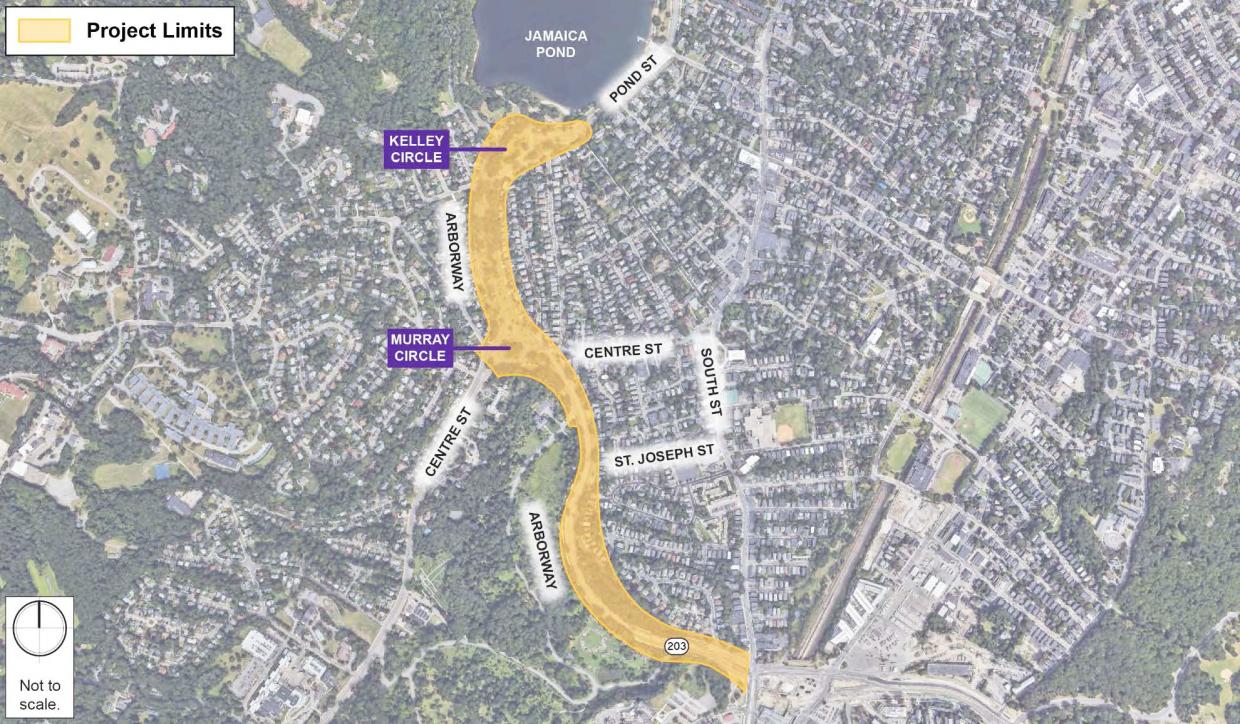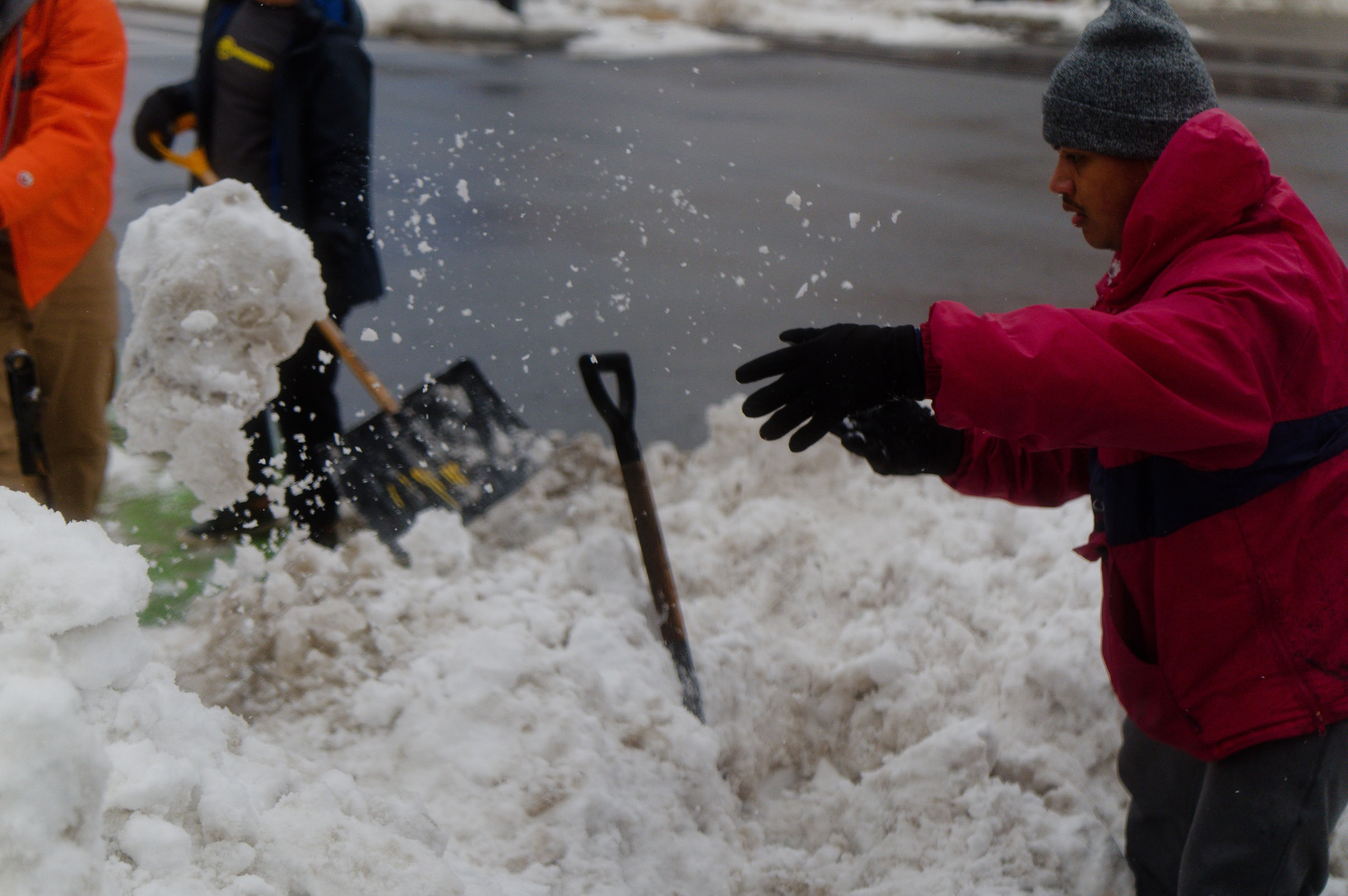The state Department of Conservation (DCR) hosted a second public meeting Wednesday night for a project that's expected to create new, protected bike and pedestrian routes along the Arborway in Jamaica Plain.
The DCR's "Arborway Parkways Improvement Project" kicked off last winter, and is aiming to produce detailed designs for a construction project that would begin in 2021.
The project is focused on the mile-long stretch of multi-lane roadways between Jamaica Pond and the Forest Hills T station. Though technically a "park," the high-speed car traffic that dominates the area effectively prevents any recreation there.
The Arborway's roadways and traffic circles have been the site of over 30 injury-causing crashes since the beginning of 2018. On Tuesday evening, StreetsblogMASS reader Kyle Vining came across another serious crash at Murray Circle, the large, complex rotary where the Arborway meets Centre Street:
POV footage of the scene at last night's car crash at the Centre St and Arborway rotary.@MassDCR @MassGovernor @EmNecklaceBos @02130News @StreetsblogMASS @MassBike pic.twitter.com/UkEKo1NDEq
— Kyle Vining (@kylevining86) June 24, 2020
In November, the DCR hosted a kickoff meeting for the project that drew over 100 attendees. At that meeting, Jeffrey Parenti, DCR’s Deputy Chief Engineer, said that the project team would examine the possibility of removing travel lanes at key locations to create on-road protected bike lanes.
Wednesday evening's meeting did not present any design concepts for the project, but Parenti and other officials said that concepts would be developed over the summer under a set of guiding principles that include improving safety, accessibility, and connectivity for all users of the Arborway, and honoring park designer Frederick Law Olmsted's historic vision for the parkland.
Parenti did, however, mention that the team was considering two options to improve safety at the Arborway's two traffic circles, either by replacing them with smaller, slower, modern roundabouts, or by converting the intersections to a typical at-grade intersections with traffic signals.
The project team also discussed its traffic assumptions for the project, which, contrary to the City of Boston's climate and transportation plans, did not forecast any significant reductions in motor vehicle volumes.
"(As a parks agency) we don't have the same traffic reduction goals that the City of Boston might have, but the spirit is the same," said Parenti. "In developing this project, and in our goals and values for this project, we want to create the connections that don't exist or aren't very good today... If we can make this corridor easier to traverse on two wheels and we can attract some trips (out of) single-occupant vehicles, I think we can get closer to that goal and the spirit of that goal."
Several participants at Wednesday's meeting urged the project team to be more visionary, and plan a project with less traffic and more parkland.
"This is a real opportunity to reimagine how we look at transportation in and around Boston," said Susan Reed, an Arborway neighbor. "DCR absolutely has obligations under the Massachusetts Global Warming Solutions Act to help put us on a trajectory towards net-zero emissions by 2050: that means more pedestrian traffic, more moving people out of vehicles onto bicycles, more telecommuting."
In spite of the pandemic, the project is still aiming to have a final design this winter in time for the 2021 construction season, and another public meeting to discuss preliminary design concepts should happen later this summer. Project managers have also set up an online feedback map where park users can flag safety issues and suggest specific improvements.
Event details:
Arborway Parkways Improvement Project
Wed. June 24, 6:30 p.m. – 8:00 p.m.
Participants may join the meeting using this link: bit.ly/Arborway6-24 or by calling (631) 992-3221 for audio. The GoTo Webinar Meeting ID is 779-646-219.






